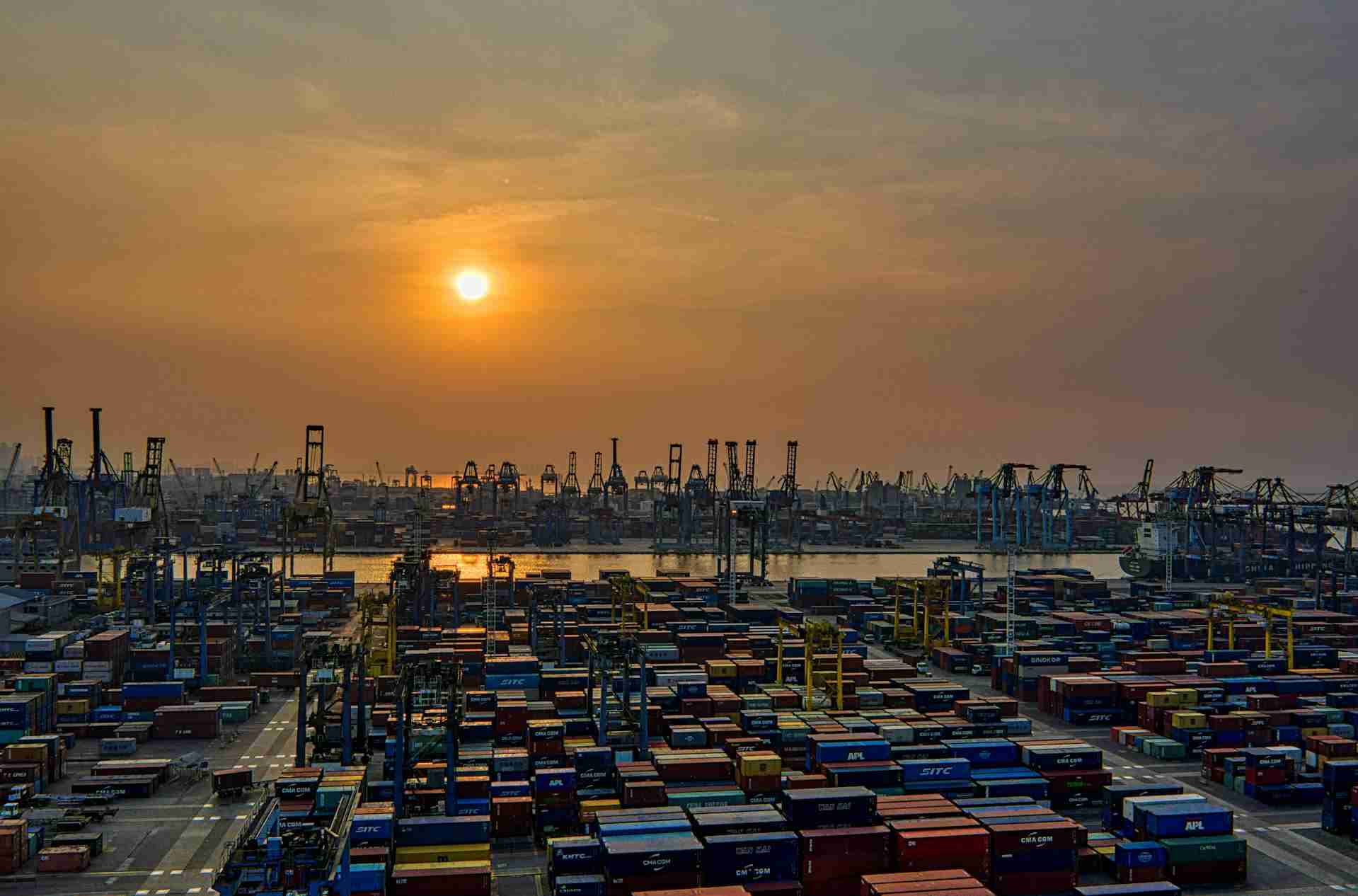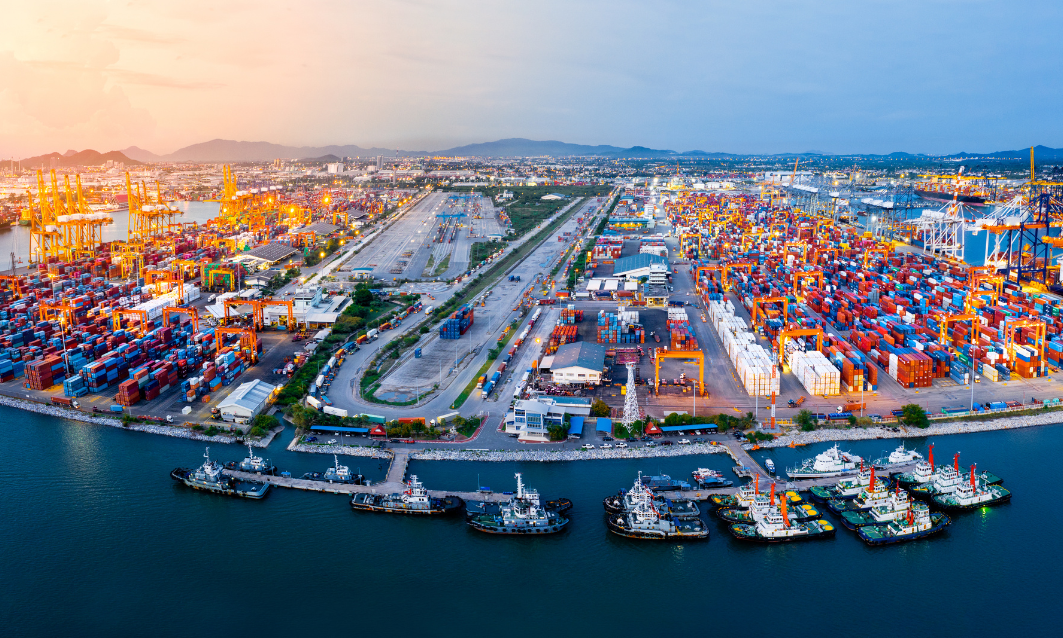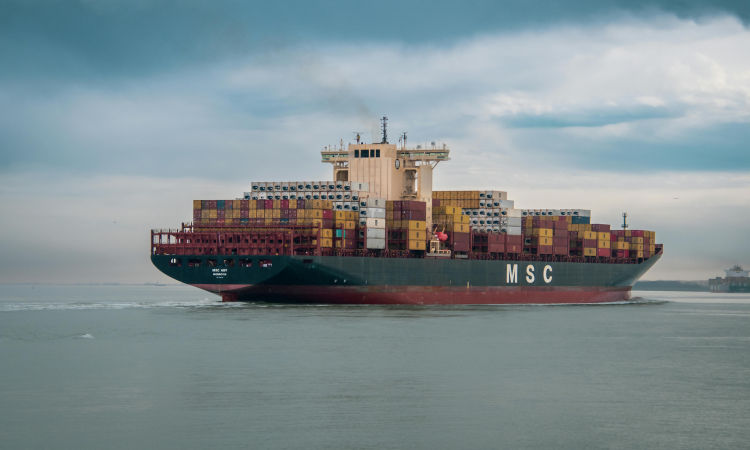Building a successful international logistics network starts with one fundamental challenge: finding and connecting with reliable partners across different countries and regions. For businesses looking to expand globally, the ability to identify trustworthy logistics partners can determine the success or failure of their international operations. TranzNova understands this challenge and provides a platform to address it effectively.
The Challenge of Building Global Connections
In today's interconnected world, businesses need more than just local logistics providers—they need a global logistics network of partners who can work together seamlessly. The challenge lies not in finding logistics companies, but in identifying the right ones who can deliver consistent service quality across borders.
Why Traditional Approaches Fall Short
Limited Geographic Reach Most logistics companies excel in their local markets but struggle when expanding internationally. Finding partners in new regions often involves:
- Cold calling companies in foreign countries
- Relying on uncertain referrals and recommendations
- Struggling with language and cultural barriers
- Dealing with different business practices and standards
Lack of Standardization When working with multiple partners across different countries, businesses face:
- Varying service quality standards
- Different communication protocols
- Inconsistent pricing structures
- Misaligned operational procedures
Understanding International Freight Forwarder Networks
An international freight forwarder network connects logistics companies worldwide, enabling them to offer services beyond their local markets. These networks create opportunities for businesses to access global capabilities through local partnerships.
How Network Connections Work
Direct Partner Relationships Modern freight forwarding companies worldwide establish direct relationships with:
- Regional logistics specialists
- Local customs brokers and clearing agents
- Warehousing and distribution providers
- Transportation companies across different modes
Collaborative Service Delivery Through network connections, partners can offer:
- Ocean freight services from origin to destination
- Air freight with local pickup and delivery
- Warehousing and distribution in multiple countries
- Customs clearance and documentation support
Essential Qualities of Reliable Network Partners
Service Reliability and Consistency
Proven Track Record When evaluating potential partners for your logistics partner network, look for:
- Consistent on-time delivery performance
- Positive customer references and testimonials
- Stable business operations and financial health
- Experience in handling your type of cargo
Communication Excellence Effective communication is crucial in international logistics:
- Clear and timely updates on shipment status
- Proactive problem-solving and solution-oriented approach
- English proficiency for international coordination
- Responsive customer service and support
Local Expertise and Global Vision
Market Knowledge Strong logistics agents networks provide:
- Deep understanding of local regulations and customs procedures
- Knowledge of regional transportation infrastructure
- Relationships with local authorities and service providers
- Cultural sensitivity and business practice awareness
Global Perspective The best partners understand:
- International trade requirements and documentation
- Cross-border logistics challenges and solutions
- Time zone coordination and communication needs
- Quality standards expected by international clients
Building Connections Through Logistics Network Platforms
The Role of Digital Platforms
A logistics network platform serves as a bridge between logistics companies worldwide, making it easier to find and connect with reliable partners. TranzNova exemplifies this approach by providing a simple yet effective platform that connects logistics companies globally. These platforms provide:
Partner Discovery
- Access to verified logistics companies in different countries
- Basic company profiles and service capabilities
- Contact information and communication tools
- Regional coverage and specialty services
Connection Facilitation
- Direct communication between potential partners
- Introduction and referral services
- Basic networking and relationship building tools
- Collaborative project opportunities
Benefits of Network Participation
Expanded Service Reach By joining a global logistics network, companies can:
- Offer services in markets they don't directly serve
- Access specialized capabilities through partner relationships
- Provide end-to-end solutions to international clients
- Build comprehensive service portfolios
Reduced Business Development Costs Companies like TranzNova help reduce the traditional costs associated with finding reliable partners:
- Lower cost of finding reliable partners
- Reduced risk of working with unknown companies
- Faster time to market in new regions
- Shared marketing and business development efforts
Practical Steps to Find Network Partners
Research and Initial Screening
Market Analysis Before searching for partners, conduct thorough research:
- Identify target markets and regions for expansion
- Understand local logistics infrastructure and capabilities
- Research regulatory requirements and trade procedures
- Analyze competitive landscape and market opportunities
Partner Identification Use multiple channels to find potential partners:
- Industry directories and online platforms
- Trade associations and professional networks
- Industry events and conferences
- Referrals from existing business contacts
Evaluation and Assessment Process
Basic Qualification Criteria When evaluating freight forwarding companies worldwide, consider:
- Valid business licenses and certifications
- Financial stability and business longevity
- Service coverage and operational capabilities
- Customer references and industry reputation
Communication and Compatibility
- Initial conversations to assess communication quality
- Understanding of your business requirements
- Willingness to collaborate and share information
- Alignment with your service standards and expectations
Working with Cargo Agent Networks
Understanding Cargo Agent Services
Cargo agent networks specialize in specific aspects of logistics operations:
- Cargo handling and documentation
- Customs clearance and regulatory compliance
- Local transportation and delivery services
- Warehousing and temporary storage solutions
Specialized Services Different agents may specialize in:
- Dangerous goods handling and compliance
- Project cargo and oversized shipments
- Temperature-controlled transportation
- High-value cargo security and insurance
Building Effective Partnerships
Clear Communication Establish clear communication protocols:
- Regular status updates and progress reports
- Defined escalation procedures for issues
- Shared contact information and communication channels
- Agreed-upon response times and availability
Mutual Benefits Successful partnerships create value for both parties:
- Fair pricing and payment terms
- Consistent business volume and opportunities
- Shared knowledge and best practices
- Long-term relationship building
Regional Considerations and Market Entry
Understanding Regional Differences
Business Practices and Culture Different regions have varying:
- Business relationship building approaches
- Communication styles and expectations
- Decision-making processes and timelines
- Legal and regulatory frameworks
Infrastructure and Capabilities Consider regional variations in:
- Transportation infrastructure and connectivity
- Technology adoption and digital capabilities
- Warehousing and distribution facilities
- Customs and regulatory processes
Market Entry Strategies
Gradual Expansion Approach
- Start with key markets and proven partners
- Build relationships gradually over time
- Test service quality with smaller shipments
- Expand based on performance and trust
Risk Management
- Diversify partner relationships across regions
- Maintain backup options for critical markets
- Monitor partner performance regularly
- Establish clear agreements and expectations
Overcoming Common Challenges
Communication Barriers
Language Differences
- Use clear, simple language in communications
- Confirm understanding of important details
- Provide written confirmations of agreements
- Use translation services when necessary
Time Zone Coordination
- Establish regular communication schedules
- Use asynchronous communication tools
- Plan for response time differences
- Schedule meetings at mutually convenient times
Quality Control and Standardization
Service Standards
- Clearly communicate your quality expectations
- Establish performance metrics and KPIs
- Regular performance reviews and feedback
- Continuous improvement initiatives
Process Alignment
- Document standard operating procedures
- Share best practices and guidelines
- Coordinate on documentation requirements
- Align on customer service standards
Technology and Digital Tools
Basic Digital Communication
Communication Platforms Effective international logistics networks use modern communication tools. Platforms like TranzNova facilitate these connections through:
- Email for formal communications and documentation
- Messaging apps for quick updates and coordination
- Video conferencing for relationship building
- Shared documents for information exchange
Tracking and Visibility
- Basic shipment tracking and status updates
- Shared documentation and customs papers
- Photo updates and milestone notifications
- Problem reporting and resolution tracking
Simple Collaboration Tools
Document Sharing
- Shared folders for common documents
- Version control for important papers
- Secure file transfer for sensitive information
- Digital signatures for agreements
Project Coordination
- Simple project management tools
- Shared calendars and scheduling
- Task assignment and progress tracking
- Contact lists and communication directories
Building Long-Term Relationships
Trust and Reliability
Consistent Performance
- Deliver on promises and commitments
- Maintain quality standards consistently
- Respond promptly to issues and concerns
- Provide accurate information and updates
Transparency
- Share relevant information openly
- Discuss challenges and solutions honestly
- Provide regular performance feedback
- Maintain open lines of communication
Mutual Growth and Development
Collaborative Opportunities
- Joint business development initiatives
- Shared marketing and promotion efforts
- Cross-referrals and business opportunities
- Knowledge sharing and training programs
Long-term Partnership
- Regular relationship review meetings
- Strategic planning and goal alignment
- Investment in relationship building
- Commitment to mutual success
Measuring Network Success
Key Performance Indicators
Service Quality Metrics
- On-time delivery performance
- Damage rates and cargo handling quality
- Customer satisfaction scores
- Problem resolution times
Business Impact Measures
- Revenue growth from network partnerships
- Market expansion and new opportunities
- Cost savings and efficiency improvements
- Customer retention and satisfaction
Continuous Improvement
Regular Reviews
- Monthly performance assessments
- Quarterly business relationship reviews
- Annual strategic planning sessions
- Ongoing feedback and improvement initiatives
Network Optimization
- Identifying gaps and opportunities
- Adding new partners and capabilities
- Optimizing existing relationships
- Adapting to market changes
Future of International Logistics Networks
Evolving Industry Trends
Digital Transformation
- Increased use of digital communication tools
- Online platforms for partner discovery
- Digital documentation and processes
- Automated status updates and reporting
Sustainability Focus
- Environmental considerations in partner selection
- Sustainable transportation and logistics practices
- Carbon footprint reduction initiatives
- Green logistics and eco-friendly solutions
Opportunities and Challenges
Emerging Markets
- Growth opportunities in developing regions
- Infrastructure development and improvements
- New trade routes and corridors
- Evolving regulatory environments
Changing Customer Expectations
- Demand for faster delivery times
- Increased transparency and visibility
- Flexible and customized solutions
- Cost-effective and efficient services
Getting Started with Network Building
First Steps
Define Your Objectives
- Identify target markets and regions
- Determine required service capabilities
- Set quality and performance standards
- Establish budget and resource allocation
Partner Search Strategy
- Use freight forwarder directories and online platforms
- Attend industry events and conferences
- Leverage existing business contacts and referrals
- Join professional associations and networks
Implementation Approach
Start Small
- Begin with one or two key markets
- Test partnerships with smaller shipments
- Build trust and relationships gradually
- Expand based on success and performance
Scale Systematically
- Document successful processes and practices
- Replicate proven approaches in new markets
- Maintain quality standards while expanding
- Invest in relationship building and maintenance
Join TranzNova's Global Network
Connect with Verified Partners
TranzNova makes it easier to find and connect with reliable logistics partners worldwide. Our logistics company collaboration platform provides:
Simple Partner Discovery
- Access to verified logistics companies globally
- Basic company profiles and contact information
- Regional coverage and service capabilities
- Direct communication tools
Easy Registration Process Getting started is simple - register now to:
- Create your company profile
- Browse partner directory
- Connect with potential partners
- Start building your network
Why Choose TranzNova
Global Reach
- Partners in major markets worldwide
- Comprehensive geographic coverage
- Local expertise with global connections
- Diverse service capabilities
Simple and Effective
- Easy-to-use platform interface
- Straightforward registration process
- Direct partner communication
- No complex features or overwhelming tools
Conclusion: Building Your Global Network
Creating a successful international logistics network requires patience, careful partner selection, and commitment to building lasting relationships. While the process may seem challenging at first, the benefits of having reliable partners worldwide far outweigh the initial investment in time and effort.
The key to success lies in focusing on the fundamentals: finding reliable partners, building trust through consistent performance, and maintaining open communication. By taking a systematic approach to partner selection and relationship building, businesses can create a global logistics network that supports their international growth objectives.
Remember that building a strong network is an ongoing process, not a one-time project. As your business evolves and markets change, your network will need to adapt and grow accordingly. The most successful companies are those that invest in their partner relationships and view their network as a strategic asset that requires ongoing attention and nurturing. TranzNova supports this ongoing process by providing a stable platform for long-term relationship building.
Ready to start building your international logistics network? Join TranzNova today to explore partnership opportunities and discover how our platform can help you find reliable logistics partners worldwide.
About TranzNova TranzNova is a simple yet effective logistics network platform that connects logistics companies worldwide. Our platform helps businesses find and connect with reliable partners across different countries and regions, making international logistics more accessible and efficient for everyone. Register now to start building your global network.




